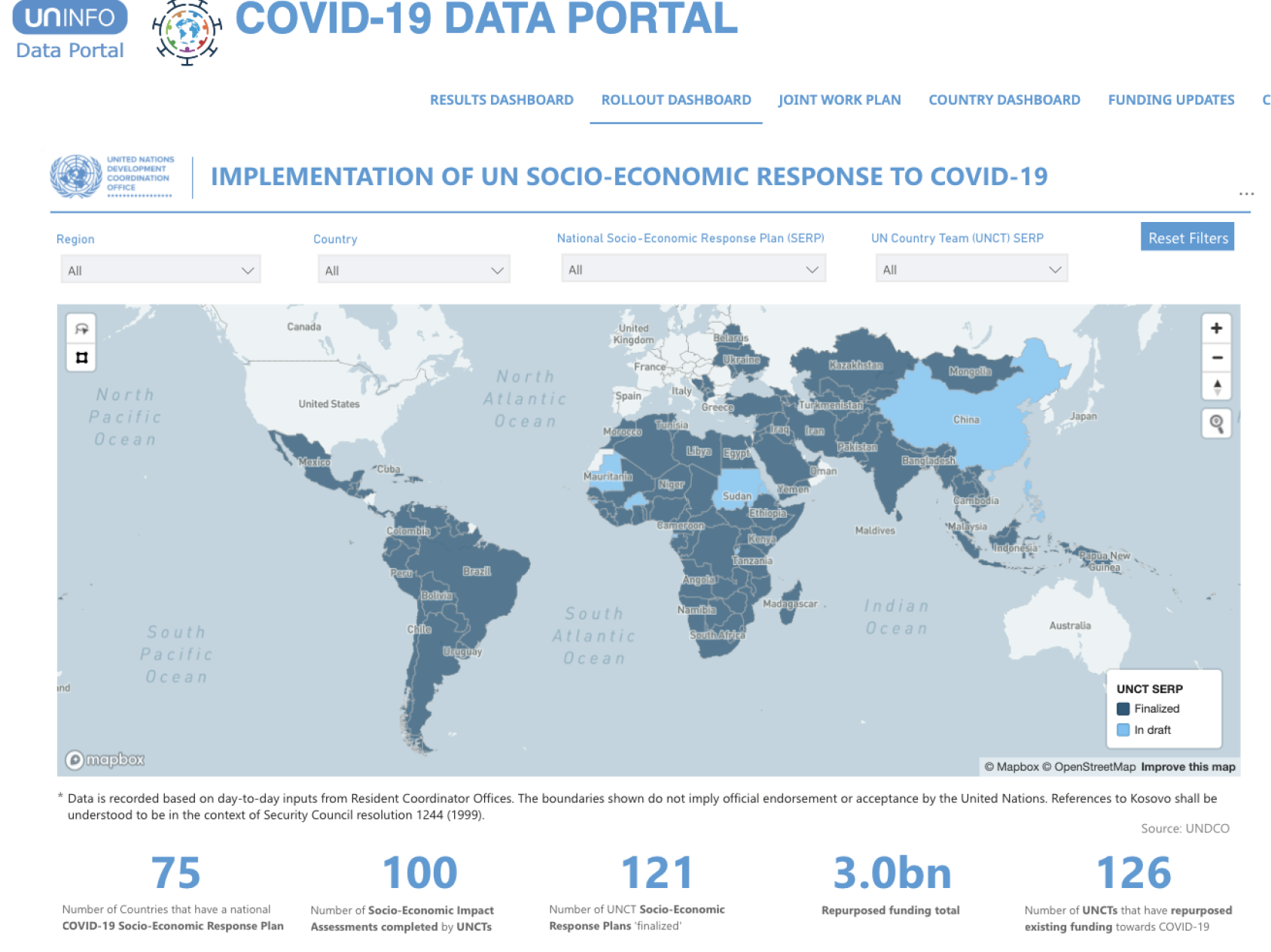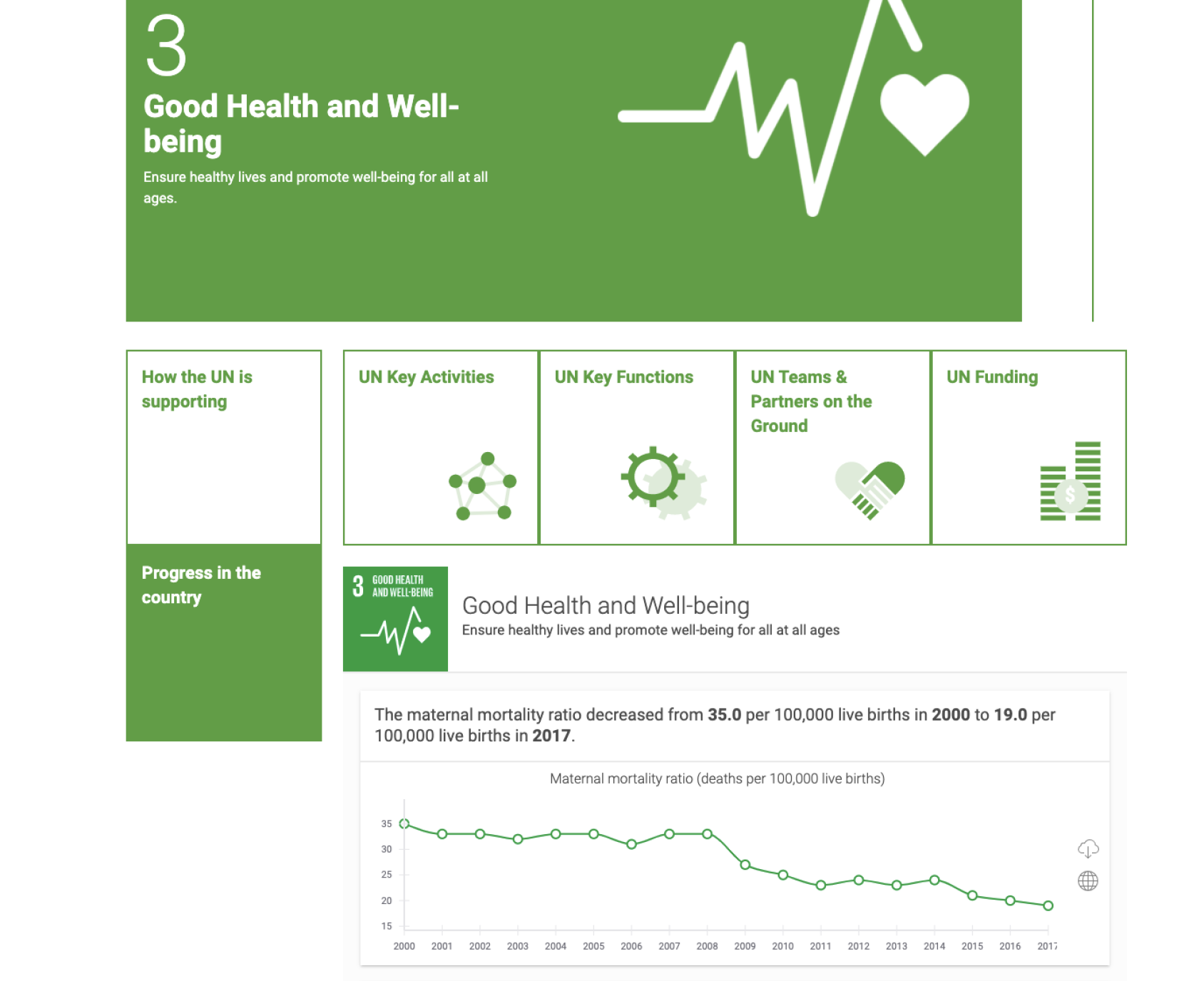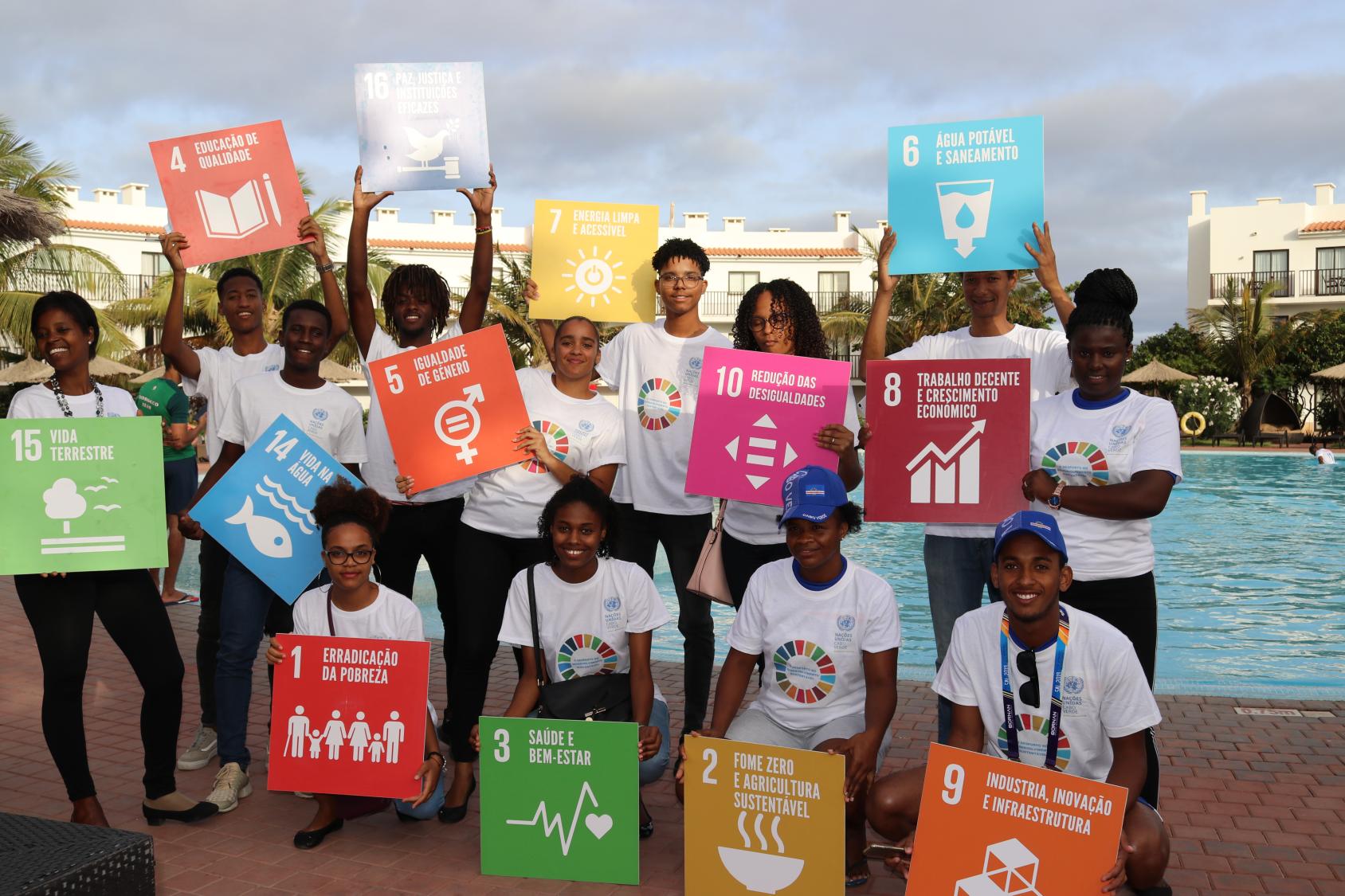4 ways UN teams are boosting data, transparency and accountability

One of many ways the UN changed its way of working on the ground three years ago has been the groundbreaking role of data in our work for more transparency and accountability. This is a crucial pillar of the UN development system reform, which bolstered a new generation of UN teams covering 162 countries and territories, better fit to address the needs of authorities and societies to advance on the Sustainable Development Goals (SDGs).
At the centrepiece of this transformation is UN INFO, an online system that allows UN teams to collect, analyze and report on their UN Sustainable Development Cooperation Framework. That’s the agreed roadmap between the UN and host authorities to advance the Sustainable Development Goals on the social, economic, and environmental fronts, within a certain timeframe. Information is then pulled automatically into country and global websites and data portals. Now you can see online in over 50 countries which entities work on which SDGs, where, what is the source of funding, what’s the current funding gap and who are our implementing partners. This also promotes joint planning and efficiency among UN entities.
Here are 4 ways UN INFO is breaking ground:
1. In 162 countries and territories: Boosting transparency to address COVID-19

When the pandemic hit, the global UN Socio-Economic Response Framework for COVID-19 and related indicators were integrated in UN INFO for all 131 UN teams –covering 162 countries and territories –to track implementation and report on results of the UN’s social and economic response to the COVID-19 pandemic.

A COVID-19 data portal was also built within UN INFO, allowing for full visibility, accountability and transparency of collective, systemwide results, in one simplified format.
Check it out and search the global and country-data: https://data.uninfo.org/.
2. Ukraine: Using data to build synergies across development and humanitarian interventions
Our UN team in Ukraine’s activities are centred around two agreed frameworks that address both the SDGs and the humanitarian needs – the UN Partnership Framework 2018-2022 and the Humanitarian Response Plan. UN INFO became a very useful tool for improving coordination, information-sharing and accountability for results in this complex UN country team environment, enabling full transparency and accuracy in information management and sharing among UN agencies, with the Government and with all development and humanitarian partners.
By visiting the UN in Ukraine’s website, anyone can see real-time data that showcases the UN’s support to the SDGs in country (from UN INFO), as well as SDG progress pulled automatically from the UN’s Department of Economic and Social Affairs platforms.

“Thanks to the contribution of UN agencies, funds and programmes, UN INFO also became an important tool for visibility and knowledge management of development and humanitarian funds, contributing to bridging the development and humanitarian interventions in the country,” explained Liudmyla Struk, Monitoring and Evaluation and Data Management Specialist in the Resident Coordinator’s Office team.
The data collected though UN INFO is being used in the Government’s data portal for development and humanitarian aid coordination. Check out their UN team 2020 results report, anchored on UN INFO, which you can read here in English and Ukrainian.
3. Mongolia: Increasing efficiency to implement the SDGs

In Mongolia, UN INFO has enabled the availability of real-time information on all programmes and activities of UN entities, whether physically present or not. The immediate availability of data brought efficiencies by significantly cutting down the coordination required to retrieve data from different UN entities on mobilized resources, cumulative development expenditures, project and programme implementation between 2017-2020 and their exact location and implementing partners.
“This has proven very useful, for example, when engaging with the Government on evaluating the joint work’s implementation to prepare their SDG roadmap, agreed with the host authorities, the Cooperation Framework,” said Ms. Altansuvd Tumursukh, Data and Reporting Officer in the Resident Coordinator’s office.
Check out Mongolia’s annual UN country team results report, also anchored on UN INFO.
4. Cabo Verde: Improving local level planning and accountability with real time data
“UN INFO was a game-changer in strengthening UN accountability to the Government, people and all partners by publicly presenting a joint vision on how the UN country team in Cabo Verde directs its actions and financial resources, and by enabling timely follow-up on the implementation of joint workplans and financing strategies for the advancement of the SDGs and all efforts to advance gender equality, human rights and synergies across UN initiatives,” Resident Coordinator Ana Patricia Graça said.

For example, enabling local level data visualization of the 22 municipalities and 10 islands of Cabo Verde notably improved the monitoring and analysis of local development, allowing a better understanding of how the UN is contributing to local and nationwide efforts to achieve the SDGs, which areas were being left behind, and reach the most remote areas and islands. This will be taken into consideration in developing the new Cooperation Framework. This feature was also critical for monitoring activities in response to the COVID-19 pandemic in 2020 and learning which SDGs it supported, which municipality was benefiting, which partners were involved and which donors funded them.
In 2020 and early 2021, the UN presented its joint results to the Prime Minister, the Deputy Prime Minister, cabinet members, development partners, the private sector and civil society, demonstrating the achievements and challenges in advancing the 2030 Agenda. The Prime Minister praised the value and innovative approach of UN INFO and stated that a similar platform should be adopted by the Government itself.
Spotlighting the way forward

As the world makes its way through this last decade of action leading towards the 2030 Agenda and its commitment to achieving the 17 Sustainable Development Goals, the UN INFO transparency platform will continue to serve as the tracking mechanism. It openly presents the combined efforts of the dedicated UN teams across the world, their partners and the governments for years to come and will continue to hold us all accountable to this transformational global commitment.
To view a sneak peek of the beta version of the UNSDG Data Portal, powered by UN INFO, visit: https://uninfo.org/.
Written by Carolina Azevedo, Development Coordination Office. To learn more about the results of our work with data and beyond, please read the latest UNSDG Chair Report on DCO.





































